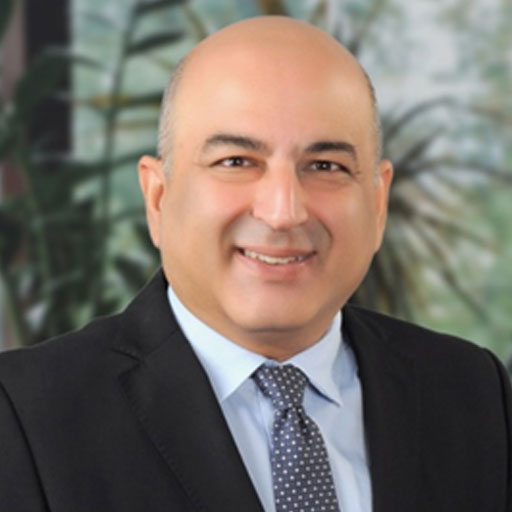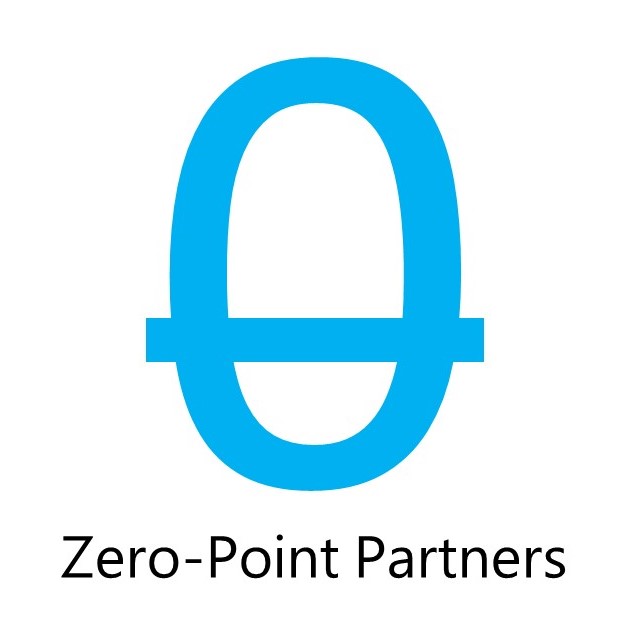About Course
Learn how to identify and prioritize the ESG issues that are most significant to your organisation’s operations and stakeholders
Outline
- Understand the concept of materiality in the context of sustainability and various materiality considerations.
- Learn how to conduct a materiality assessment and identify key ESG risks and opportunities
- Evaluate how stakeholders are key in determination of materiality and informing ESG strategy
- Understand the impact that your organization has on key stakeholders and vice-versa
Faculty

Shafaq Fauzil Azim is a Fellow of the Institute of Chartered Accountants of Pakistan (ICAP) and a
member of its Auditing Standards & Ethics Committee. She serves as an Independent Director on
the Board of a not for profit, public-private partnership that reviews risk assessments for
sustainable development projects.
With over 25 years of experience in corporate governance, audit, quality, and risk management,
she currently heads the advisory function at the Pakistan Institute of Corporate Governance
(PICG) with expertise in board services and performance evaluations and is the Secretary to the
Board and to the Audit & HR Committees. She is an IFC trained faculty and content developer for
PICG’s flagship Director Training program and customized Director Orientation workshops, etc.
and has contributed to several publications of the Institute, including surveys on Corporate
Governance, Board Oversight, and ESG Awareness in Pakistan.
Prior to PICG, she worked at EY Pakistan in the Audit & Assurance and Quality & Risk Management
Departments, respectively, and served as Chief Internal Auditor at Greenstar Social Marketing
Pakistan (Guarantee) Limited.
About Course
The Environmental and Social Risk management Course offers a comprehensive understanding of Environment and Social Risk Management, covering ESG fundamentals, risk assessment, mitigation strategies, and embedding ESG into organizational practices for effective management.
Outline
- Learn to identify and assess environmental and social risks.
- Develop and implement plans to mitigate identified risks.
- Learn to integrate ESG risk into corporate risk management process.
- Practice and learn through international recommended guidelines.
Faculty

Ms. Zehra Aneek is a sustainability and climate professional with 23 years of experience, She leads EY Ford Rhodes' Sustainability and Climate Change unit. Her expertise spans Sustainability Strategy, ESG due diligence, Clean Technology Transition, Climate Adaptation and Mitigation, Energy Efficiency, Enterprise Risk Management, Social Impact Valuation, and Circular Economy.

Ms. Atiya Irfan Dossa is a Director in Business Consulting and is based in our Karachi (Pakistan) Office. She has been with the firm more than 20 years. Over the last 16 years Atiya has been involved in delivering risk management and consulting services to clients from the Financial Services industry (Banking sector in particular) in Pakistan. Prior to that, she has worked in EY’s Assurance service line for 4 years performing statutory audits in the Financial Services industry.
Partner - EY Ford Rhodes (EY)

About Course
The Environmental and Social Risk management Course offers a comprehensive understanding of Environment and Social Risk Management, covering ESG fundamentals, risk assessment, mitigation strategies, and embedding ESG into organizational practices for effective management.
Outline
- Learn to identify and assess environmental and social risks.
- Develop and implement plans to mitigate identified risks.
- Learn to integrate ESG risk into corporate risk management process.
- Practice and learn through international recommended guidelines.
Faculty

Ms. Zehra Aneek is a sustainability and climate professional with 23 years of experience, She leads EY Ford Rhodes' Sustainability and Climate Change unit. Her expertise spans Sustainability Strategy, ESG due diligence, Clean Technology Transition, Climate Adaptation and Mitigation, Energy Efficiency, Enterprise Risk Management, Social Impact Valuation, and Circular Economy.
Partner - EY Ford Rhodes (EY)

About Course
'A good ESG strategy is embedded into the company strategy and is an integral basis of company's key decisions and actions'
Outline
- Understand why an ESG Strategy is critical for businesses
- Learn what are key elements of a good ESG Strategy
- Discuss examples of good ESG Strategy formulation
- Deep dive into stakeholder engagement process
- Learn about key factors of an ESG strategic action plan
Faculty

Memosh Khawaja is the President and CEO of Pakistan Institute of Corporate Governance.
He has more than 14 years of international corporate business leadership experience, as a global business steering director based out of Germany and as Managing Director Middle East for Henkel KGaA, and as CEO for Haleeb Foods in Pakistan. He started his professional career with Unilever in Pakistan.
Memosh has a board designation on Climate Change (CCB.D) and ESG (GCB.D) and has also advised on strategy and sustainability for the corporate sector. He also serves as a non-executive independent director on local and international boards.
Memosh is an MBA from Lahore University of Management Sciences (LUMS) and has obtained executive leadership training in strategy and innovation from the MIT Sloan school of Management.
About Course
This module builds on a foundational understanding of ESG principles and introduces ESG target-setting best practices. Participants will learn how to develop a baseline for an ESG indicator and set bold, measurable targets aligned with broader organizational goals and frameworks. An introductory ESG course covering materiality assessment and ESG disclosure best practices will be a prerequisite for this module.
Outline
- How to develop a baseline for an ESG indicator (two examples one each for an E and S factor)
- Importance of aligning targets to a framework or bigger commitment like SBTi, NDCs.
- Importance of setting ambitious, bold targets
- Importance of setting measurable, time-bound / period-based targets
- Key insights / critical success factors for successful target achievement
Faculty

Maha Qasim is the CEO of Zero-Point Partners, an advisory & consulting firm focused on enabling the transition to a sustainable economy. With over 16 years of experience in environmental management, ESG strategy & disclosure and climate finance, Maha specializes in sustainability strategy advisory, capacity-building and program implementation. She has advised on sustainability initiatives for banking & financial institutions, fertilizer, steel, power generation, textile and FMCG companies.
Previously, Maha served as Country Advisor, Pakistan, to the world’s largest philanthropic foundation – working with program teams to develop a coordinated donor-government strategy, and cultivating partnerships to advance strategic goals.
She serves on the Board of the Global Youth Leadership Center (GYLC) – an international nonprofit that aims to expand youth’s knowledge about climate science, build their leadership skills, and engage them with climate action. She is a founding member of the Leadership Council of the United Nations Sustainable Development Solutions Network – Pakistan.
Maha has a Master’s in Environmental Management from the Yale School of Environment and a BSE in Civil and Environmental Engineering from Princeton University.
Partner - Zero Point

About Course
This module builds on a foundational understanding of ESG principles and introduces ESG target-setting best practices. Participants will learn how to develop a baseline for an ESG indicator and set bold, measurable targets aligned with broader organizational goals and frameworks. An introductory ESG course covering materiality assessment and ESG disclosure best practices will be a prerequisite for this module.
Outline
- How to develop a baseline for an ESG indicator (two examples one each for an E and S factor)
- Importance of aligning targets to a framework or bigger commitment like SBTi, NDCs.
- Importance of setting ambitious, bold targets
- Importance of setting measurable, time-bound / period-based targets
- Key insights / critical success factors for successful target achievement
Faculty

Maha Qasim is the CEO of Zero-Point Partners, an advisory & consulting firm focused on enabling the transition to a sustainable economy. With over 16 years of experience in environmental management, ESG strategy & disclosure and climate finance, Maha specializes in sustainability strategy advisory, capacity-building and program implementation. She has advised on sustainability initiatives for banking & financial institutions, fertilizer, steel, power generation, textile and FMCG companies.
Previously, Maha served as Country Advisor, Pakistan, to the world’s largest philanthropic foundation – working with program teams to develop a coordinated donor-government strategy, and cultivating partnerships to advance strategic goals.
She serves on the Board of the Global Youth Leadership Center (GYLC) – an international nonprofit that aims to expand youth’s knowledge about climate science, build their leadership skills, and engage them with climate action. She is a founding member of the Leadership Council of the United Nations Sustainable Development Solutions Network – Pakistan.
Maha has a Master’s in Environmental Management from the Yale School of Environment and a BSE in Civil and Environmental Engineering from Princeton University.
Partner - Zero Point

About Course
‘Learn why ESG integration is critical to long-term corporate value creation’.
Outline
- Understand what ESG is and how it is different from social investing
- Learn why ESG is important and who is driving the agenda
- Explore value creation opportunities from ESG integration
- Learn from case studies and global data
- Understand the ESG value chain and integration process
Faculty

Memosh Khawaja is the President and CEO of Pakistan Institute of Corporate Governance.
He has more than 14 years of international corporate business leadership experience, as a global business steering director based out of Germany and as Managing Director Middle East for Henkel KGaA, and as CEO for Haleeb Foods in Pakistan. He started his professional career with Unilever in Pakistan.
Memosh has a board designation on Climate Change (CCB.D) and ESG (GCB.D) and has also advised on strategy and sustainability for the corporate sector. He also serves as a non-executive independent director on local and international boards.
Memosh is an MBA from Lahore University of Management Sciences (LUMS) and has obtained executive leadership training in strategy and innovation from the MIT Sloan school of Management.
About Course
‘Learn why ESG integration is critical to long-term corporate value creation’.
Outline
- Understand what ESG is and how it is different from social investing
- Learn why ESG is important and who is driving the agenda
- Explore value creation opportunities from ESG integration
- Learn from case studies and global data
- Understand the ESG value chain and integration process
Faculty

Memosh Khawaja is the President and CEO of Pakistan Institute of Corporate Governance.
He has more than 14 years of international corporate business leadership experience, as a global business steering director based out of Germany and as Managing Director Middle East for Henkel KGaA, and as CEO for Haleeb Foods in Pakistan. He started his professional career with Unilever in Pakistan.
Memosh has a board designation on Climate Change (CCB.D) and ESG (GCB.D) and has also advised on strategy and sustainability for the corporate sector. He also serves as a non-executive independent director on local and international boards.
Memosh is an MBA from Lahore University of Management Sciences (LUMS) and has obtained executive leadership training in strategy and innovation from the MIT Sloan school of Management.
About Course
Practical training on IFRS S1 & S2 for sustainability and climate-related reporting in Pakistan.
Outline
- Introduction to IFRS S1 and S2 and Pakistan’s regulatory transition
- Core sustainability disclosures, materiality, and SASB metrics
- Climate risks, GHG emissions, and scenario analysis under IFRS S2
- Integrating sustainability and climate disclosures with financial reporting
Faculty

Ms. Fauzia Safdar Khan is a fellow member of the Institute of Chartered Accountants of Pakistan (ICAP) and an associate of the Institute of Chartered Accountants in England and Wales (ICAEW). She holds an MBA in sustainability from the University of Leicester. Currently, Ms. Khan is serving as the Director of Sustainability and Climate at Crowe Pakistan (Crowe Hussain Chaudhury & Co.) She has been instrumental in spearheading a diverse range of projects across various industries. Her primary area of expertise revolves around sustainability reporting, strategic planning and development, greenhouse gas (GHG) emissions, carbon offsetting strategies, SBTi target-setting processes, policy formulation, and creating comprehensive environmental, social and governance ESG strategies aligned with organizational objectives. She is adept at managing the entire process - from commitment to disclosure - with utmost diligence and professionalism.
Partner - Crowe Pakistan

About Course
"A deep dive into the essentials of sustainability reporting, guiding Pakistani businesses through the adoption of international frameworks, strategic materiality assessments, and credible ESG disclosures for enhanced stakeholder trust."
Outline
- The business case for sustainability reporting
- Overview of Sustainability reporting standards
- Recommended approach to prepare for sustainability reporting
- Creating a sustainability report
Faculty

Ms. Zehra Aneek is a sustainability and climate professional with 23 years of experience, She leads EY Ford Rhodes' Sustainability and Climate Change unit. Her expertise spans Sustainability Strategy, ESG due diligence, Clean Technology Transition, Climate Adaptation and Mitigation, Energy Efficiency, Enterprise Risk Management, Social Impact Valuation, and Circular Economy.
Partner - EY Ford Rhodes (EY)

